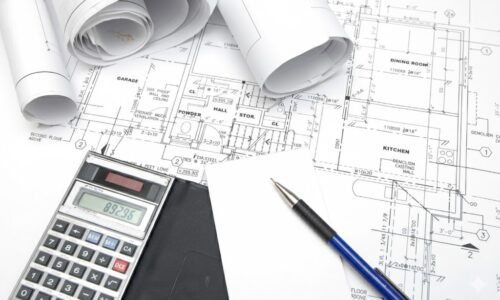In the construction industry, where projects often involve complex planning, coordination, and substantial financial investment, accuracy in construction estimating plays a pivotal role in determining the success or failure of a project. Whether it’s a residential home or a large-scale commercial development, inaccurate estimates can lead to budget overruns, project delays, and strained relationships with clients and stakeholders. In contrast, accurate construction estimates set the foundation for smooth project execution, ensuring cost control, resource allocation, and risk management.
In this blog, we will delve into why accurate construction estimates are critical to successful projects, the consequences of inaccurate estimates, and how professional estimating services can help deliver precise, reliable results for your construction projects.
What is a Construction Estimate?
A construction estimate is a detailed calculation of the expected costs to complete a construction project. It includes everything from material costs, labor, equipment, overheads, and potential risks or contingencies. Estimating is the cornerstone of project planning and budgeting, providing stakeholders with a clear picture of what the project will cost and how long it will take to complete.
While estimating may seem straightforward, it is a highly intricate process that requires experience, knowledge of industry trends, and an understanding of various factors that can impact the final project cost. For this reason, accurate construction estimating is vital to avoid financial surprises during the project lifecycle.

The Importance of Accurate Construction Estimates
Ensuring Budget Control
Budget control is one of the primary reasons why accurate construction estimates are essential. Without a well-thought-out estimate, it becomes challenging to maintain control over project costs. An inaccurate estimate might cause significant underestimation, leading to unexpected expenses during the project, or overestimation, which could result in losing bids to more competitively priced contractors.
Accurate Estimating: Accurate estimates ensure that all costs are accounted for, including materials, labor, permits, and any other associated expenses. This prevents cost overruns and allows for better financial planning.
Inaccurate Estimating: Inaccurate estimates can quickly spiral into financial chaos, leading to budget overruns that can strain the project and possibly jeopardize its completion. In worst-case scenarios, poorly estimated projects may end up abandoned due to financial constraints.
Accurate estimates help set realistic financial expectations for both contractors and clients, promoting transparency and trust.
Preventing Project Delays
Construction projects are highly sensitive to delays, and these delays are often tied to financial or resource planning issues. If a project starts with an inaccurate estimate, chances are that unforeseen costs will arise during construction, which can cause project halts while additional funds are secured.
Accurate Estimating: Accurate estimates factor in every known aspect of the project, from materials to labor availability, ensuring there are fewer surprises down the line. By providing a realistic projection of costs and timelines, accurate estimating can prevent the need for expensive and time-consuming changes mid-project.
Inaccurate Estimating: An inaccurate estimate that doesn’t properly account for materials, labor, or equipment can lead to project delays as contractors scramble to source additional resources or secure more funds. These delays not only affect the project’s completion but can also impact the relationship with clients.
By starting with a precise and detailed estimate, contractors can reduce the likelihood of delays and keep the project on schedule.
Facilitating Better Resource Management
Effective resource management is vital in construction projects. Misallocation of labor, materials, and equipment can result in inefficiencies that lead to wasted time and money. Accurate estimates ensure that project managers have a clear understanding of the resources required to complete the project.
Accurate Estimating: Accurate estimates break down the quantity of materials, the number of laborers, and the equipment needed for each phase of the project. This helps contractors allocate resources more efficiently, preventing over-ordering or under-staffing.
Inaccurate Estimating: When estimates are off, resource management becomes chaotic. Overestimating labor needs can lead to unnecessary costs, while underestimating can delay the project as teams scramble to bring in additional workers or materials.
Accurate estimates ensure resources are properly planned and allocated, which is essential for efficient project execution.
Winning More Bids
For construction companies, the accuracy of estimates is also crucial when competing for new business. Inaccurate estimates, whether too high or too low, can cost a contractor the chance to win a project.
Accurate Estimating: When estimates are based on accurate data and industry knowledge, they are competitive and realistic. This can lead to winning more bids, as clients and developers are more likely to trust a contractor that demonstrates an understanding of true project costs.
Inaccurate Estimating: Submitting estimates that are either too high or too low can result in lost opportunities. If the estimate is too high, clients will likely go with a more cost-effective competitor. If it’s too low, the contractor risks underbidding and suffering losses during the project.
By providing accurate estimates, contractors can improve their chances of winning bids while maintaining profitability.
Mitigating Risk
Every construction project carries some degree of risk, whether it’s related to unforeseen site conditions, weather delays, or fluctuating material costs. Accurate estimating allows for better risk management by accounting for potential issues and building contingency plans into the estimate.
Accurate Estimating: Professional estimators know how to factor in risks and uncertainties. By incorporating contingencies for possible project disruptions, accurate estimates allow contractors to respond to challenges without jeopardizing the entire project.
Inaccurate Estimating: Failing to account for risks in an estimate can leave a project vulnerable to unexpected costs, which can derail budgets and timelines. An inaccurate estimate that doesn’t anticipate possible challenges can lead to cost overruns and project delays.
Accurate estimating not only provides a clear financial roadmap but also prepares contractors to handle potential risks more effectively.

Consequences of Inaccurate Construction Estimates
While the benefits of accurate construction estimating are clear, the consequences of inaccurate estimates can be severe and wide-ranging. Projects that start with faulty estimates are more likely to experience the following issues:
Budget Overruns: The most obvious consequence of inaccurate estimates is the likelihood of exceeding the project’s budget. This can result in strained relationships with clients, reduced profitability, and even project termination in extreme cases.
Delays and Downtime: When a project’s costs are not accurately forecasted, it often leads to delays. This could be due to insufficient materials, inadequate labor planning, or unanticipated complications. Every delay increases the overall cost of the project.
Loss of Credibility: Contractors who consistently provide inaccurate estimates risk losing their reputation in the industry. Over time, clients and partners may start to view the contractor as unreliable, which could lead to a loss of business.
Legal Disputes: In extreme cases, inaccurate estimates can result in legal disputes. If the project fails to meet the budget or is delayed due to estimation errors, clients may seek legal recourse, which can be costly and time-consuming for the contractor.
How Measure Manage Provides Accurate Construction Estimating
At Measure Manage, we understand the importance of delivering accurate and reliable estimates for every construction project. Our team of experienced estimators uses advanced tools like Bluebeam and Excel to ensure that every aspect of the project is thoroughly assessed, from material costs to labor and equipment.
We take the time to review project documents meticulously, identify potential risks, and build contingencies into our estimates. As members of the Royal Institute of Chartered Surveyors (RICS) and the Australian Institute of Quantity Surveyors (AIQS), we adhere to the highest standards of professionalism and accuracy.
Whether you’re working on a small residential build or a large civil project, our estimating services are designed to help you succeed by providing the accurate information you need to plan, budget, and execute your project.
Ready to Ensure Success with Accurate Estimates?
Don’t let inaccurate estimates compromise the success of your project. At Measure Manage, we provide expert estimating services that guarantee accuracy and reliability, setting your project on the path to success from day one.
Contact us today to request a quote or learn more about how our estimating services can support your next project. Visit our website, call us, or fill out our online form to get in touch with our team.




